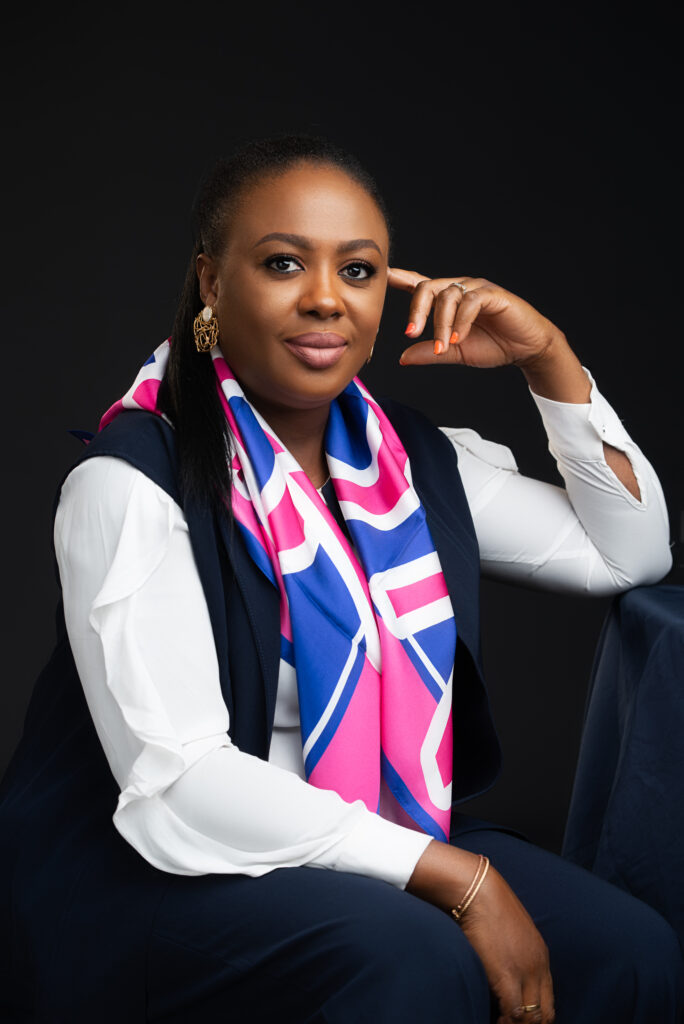Celebrating Women
Inching Towards Inclusion
Earlier this year, Kearney and Business Engage hosted a panellist debate around how and why financial and education inclusion should be encouraged to foster more diversity. The panel concluded with an agreement that inclusion of this nature ticks almost half of all the United Nations’ (UN) Sustainable Development Goals. Another key takeaway from the debate asserted quite strongly that if you don’t intentionally include people, you end up unintentionally excluding them.
The panel, led by Theo Sibiya, partner and managing director Africa at Kearney, and Jo-Ann Pöhl, senior advisor for Kearney, included:
- Mojolaoluwa Aderemi-Makinde, head of brand and reputation for Google, sub-Saharan Africa;
- Betty Korir, CEO of Credit Bank Limited;
- Nuru Mugambi of FKIB Sustainable Finance and Responsible Investment;
- Abimbola Agbejule, head: corporate sustainability at Wema Bank;
- Charmaine Houvet, senior director: Africa at Cisco;
- Melvyn Lubega, co-founder at Go1; and
- Hentus Honiball, partner at Kearney, Middle
East Africa.
Pursuing SDG 8
Given the challenges we have lived through over the past few years with a global pandemic, a war in Eastern Europe, unprecedented inflation rates, and a shift in world power, the UN’s 8th SDG “Promoting inclusive and sustainable economic growth, employment and decent work for all”, may seem like an unobtainable task, but it is something the continent must be committed to achieving if Africa is to reclaim socioeconomic transformation.
“The pursuit of inclusion is a subject we have noticed in every territory in which we work. The question is how we learn from these territories and bring the best solutions to the people of Africa. We need to remove the barriers that exclude people from financial activity,” says Honiball.
“There is some misalignment about bringing new customers into the financial system. We need to align it better so that we can address financial inclusion. You cannot exclude people because they don’t have a permanent salary. Judge them on their behaviour rather than on their assets,” he adds.
Mugambi says she believes the work boils down to “rewiring” banking in Africa.
Challenges, opportunities and initiatives
“There are challenges and there are opportunities. We can learn from other markets, especially the lesson about access to markets. Inclusion is a means to an end for people. We need to understand what they want to use the money for when we talk about real inclusion. We need to make the most of the COVID Kairos moment we find ourselves in,” Mugambi says.
“Equipping people with the right tools and empowering them helps unlock their potential and ensures that we realise the critical and long-term positive effects of a stronger and more sustainable Africa. We want the right kind of inclusion. We need to see financial and education inclusion as a contact sport and get involved,” says Pöhl.
That may sound like a heavy responsibility for members of the financial and education sectors, but the panellists agree that even one initiative can make an enormous impact. Lubega’s Go1 is a case in point. He informs that the company has its roots in a problem he experienced personally: although hungry for personal development, he was unsure of how or where he could access resources to grow his skills base. “This problem is especially keenly felt by small businesses,” he points out. “On the one hand, they understand that upskilling staff is a crucial exercise if they wish to be able to compete against bigger players. On the other, many aren’t able to afford skills development programmes.”
Lubega realised that technology may provide a solution. “The reality is that technology can often be a double-edged sword when it comes to education,” he points out, noting that we saw this effect during the COVID-19 pandemic. Far from acting as a bridge for greater inclusion, online learning amplified disparities between those who had access and those who did not. Cognisant of the need to avoid this pitfall, Lubega envisaged developing a simple interface that offered a holistic ecosystem of learning for individuals and companies alike.
Lubega speaks passionately about how such a tool might be harnessed to help people unlock potential – and he’s extremely proud that, around the world, someone is doing just this every 1.3 seconds by starting a Go1 course. He says that the goal is to eventually reach one billion learners – an objective that, when fulfilled, will have a tremendous knock-on impact.
The power of this impact cannot be underestimated, says Aderemi-Makinde – especially when it comes to addressing issues such as the gender divide. Aderemi-Makinde explains that the company’s initiatives are informed by the insight that “if you don’t intentionally and proactively include, you unintentionally exclude”. She maintains that online learning speaks directly to this philosophy, especially when it comes to empowering women. “The channel works for women because of its mobility. This makes access easier as they try to juggle their responsibilities throughout the day.” A look at the demographics of students who have completed courses offered by Google Digital Academy confirms this – 48 per cent of these students are female. Aderemi-Makinde says that achieving this statistic has been made possible through conscious planning and tailoring course material so that it is both relevant and leads to real growth. For example, acknowledging that many women in Africa earn a living through entrepreneurship, the academy focuses on topics such as growing a business and providing skills to become investor-ready.
The question arises, however, of what happens once these entrepreneurs have developed the skills to, say, develop new products or reach new markets? After all, if they are still financially marginalised, how much will they benefit from their efforts? Honiball admits that barriers to financial inclusion remain a very real problem in many parts of Africa and other developing economies. Remove those barriers and the economic reality of populations in these countries looks very different. Honiball reports that Kenya was able to grow its gross domestic product by 30 per cent simply by improving financial inclusion, which is why the World Bank considers this to be one of the key enablers for eradicating poverty.
Addressing the number of unbanked individuals is therefore critical. Honiball concedes that Africa faces a unique challenge here because of inadequate infrastructure – but, he says, the continent also has a reputation for leapfrogging adoption, and if innovative solutions are found, they may be applied swiftly, and to great effect.
Banking models need to be relooked
Honiball adds that partnerships are useful in this regard. “The World Bank says that financial inclusion can be bolstered by offering useful, affordable products that meet people’s needs, but this will be interpreted differently by different stakeholders. Take regulators, for example, their chief concern is to mitigate risk, while for a bank, it’s about maintaining a profitable business. Meanwhile, a consumer’s actions are motivated by trust. Viewed from this perspective, it’s clear that there is little alignment between the key actors in the financial sector, which points to the fact that we may need to change how we view the factors that make a potential customer high or low risk.”
Honiball suggests shifting the focus from net assets and worth to behaviour, and broadening models so that instead of placing emphasis on credit-based transactions, we take into account the fact that in Africa, the informal sector is almost entirely cash-based, which means that even successful individuals may not be considered bankable. “We need to think of financial inclusion as a matter of practicality rather than profitability,” he says. For a new model to emerge, certain paradigms may have to alter – like the idea that financial inclusion is about banking, when, in fact, transactions can take place anywhere (as digital banking has shown us).
Honiball calls for governments to get on board to drive this change: perhaps banks that promote financial inclusion could be offered tax incentives, for example, or campaigns could be mounted to encourage banks and regulators to cultivate a deeper understanding of their customers, perhaps leveraging data to give clearer insights into the behaviour of the unbanked. At the same time, consumers must be targeted through education campaigns that emphasise the role of trust and assure them that money kept in a bank is secure.
Mugambi shares Honiball’s view that banking models need to evolve. She points to the crisis created by lack of access during the pandemic: “Many African governments struggled to provide a social safety net to citizens during lockdowns because of the informal nature of our economies. They simply weren’t able to identify people who needed help.”
Financial resilience – threats and possibilities
Mugambi’s interest in access extends to sustainable finance and financial resilience. Her concern is that while a large number of Africa’s population is still financially fragile, there are limits to what financial inclusion can achieve.
Added threats to financial resilience come in the form of climate change and the fourth industrial revolution – all of which exacerbate situations such as those we experienced during the pandemic. “That’s why the nexus between inclusion, resilience and digitalisation is key,” she notes. Mugambi’s key concern here is what shifts need to take place to ensure that small and medium sized enterprises can take part in the economy, especially as we move towards net zero, and how we can ensure that policies are aligned so that they make room for inclusion.
“We are undeniably facing challenges, but there are also opportunities. I would like to see us learning from other markets – which, over time, we may come to leapfrog.” Mugambi cites certain Asian markets as good examples, commending policymakers for their purposeful approach to creating digital ecosystems that support the transition from informal to quasi and, finally, formal economies. “Look at the work done by Ali Baba, for example: the company has partnered with the Digital Free Trade Zone in an effort to create greater access to digital markets.”
Inclusion equals improvement
Ultimately, Mugambi concludes, inclusion is not a means to an end, but a way of creating ecosystems that can help improve quality of life.
The panellists’ discussions reveal their belief that inclusion is a virtuous circle because there can be no inclusion without education. The good news? In Mugambi’s words, “I feel that we are entering a time of Kairos, ironically brought on by COVID: a divinely appointed time of opportunity driven by rapid automisation and digitalisation, which means that despite of the challenges facing us in terms of inclusion, there are also many opportunities”.






 Sign-up and receive the Business Media MAGS newsletter OR SA Mining newsletter straight to your inbox.
Sign-up and receive the Business Media MAGS newsletter OR SA Mining newsletter straight to your inbox.